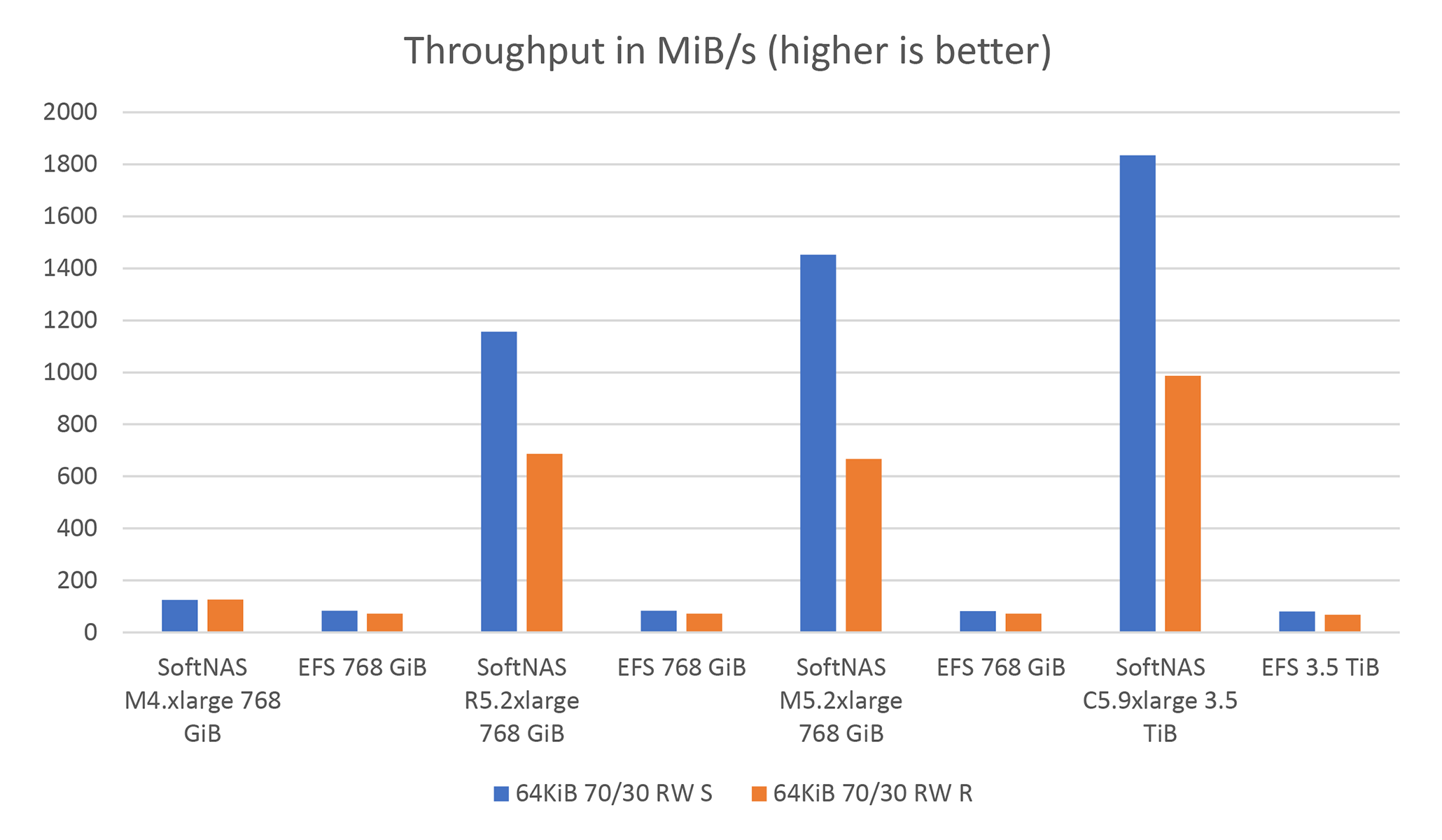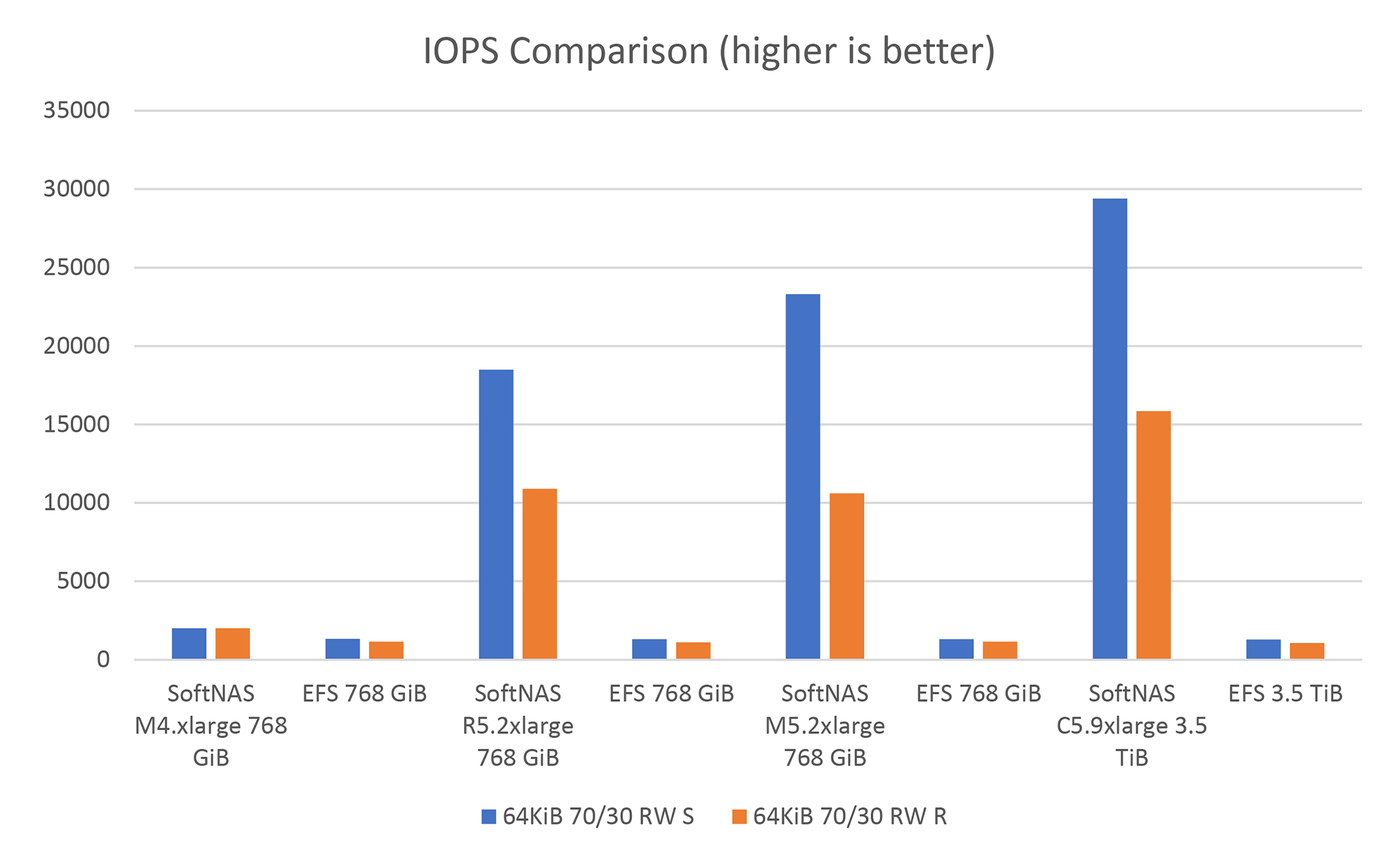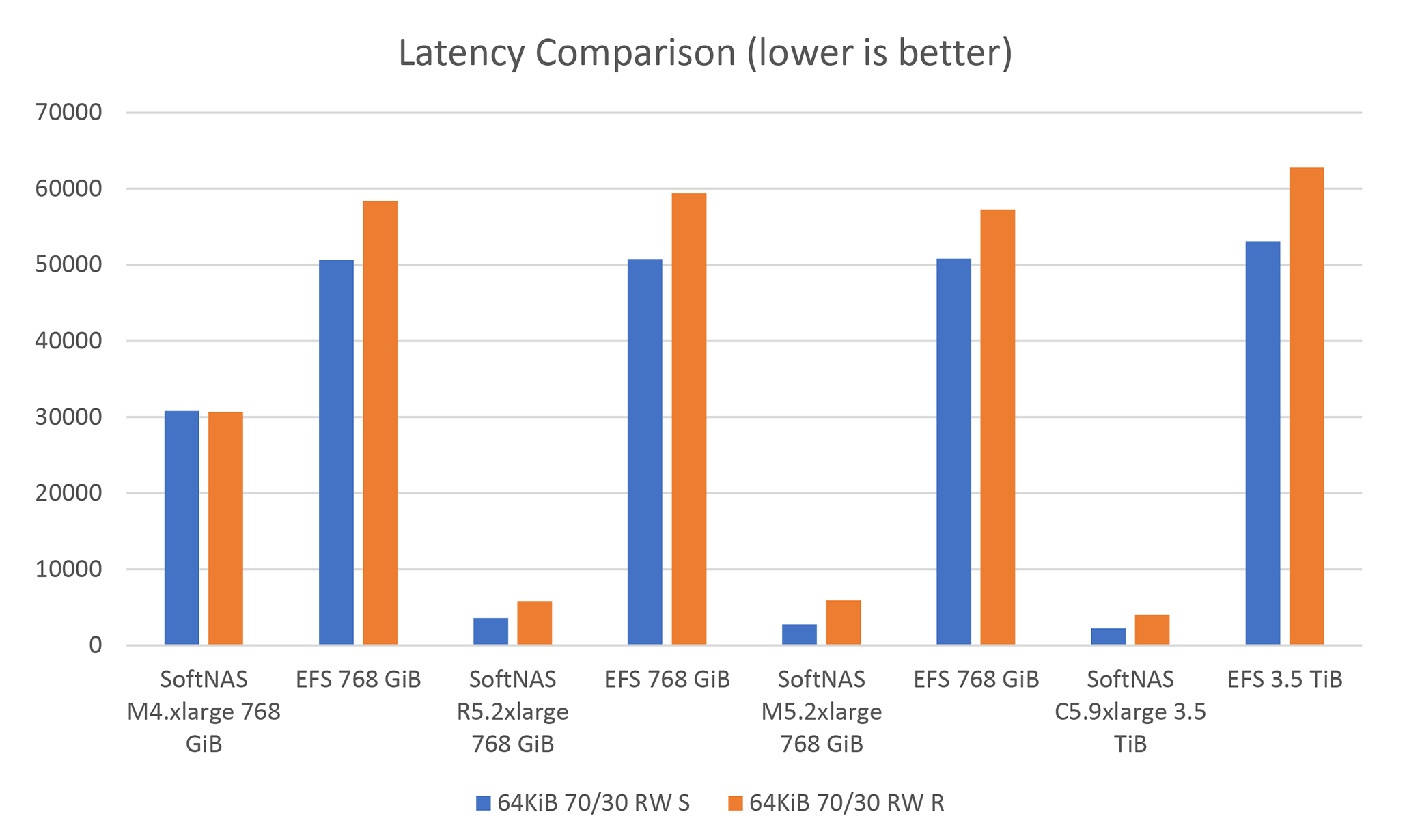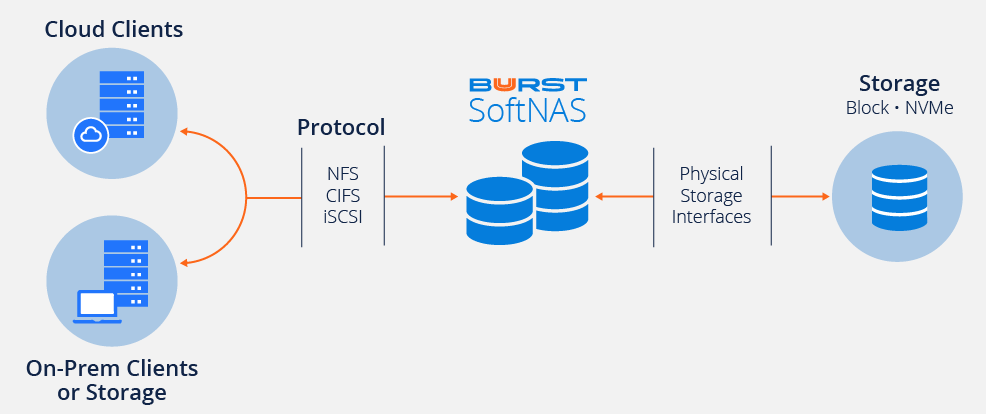AWS EFS Alternative – SoftNAS®
If you are looking for Amazon AWS EFS Alternative then look no further!
Increase cloud application performance with 5x faster throughput, 3x better IOPS, and 14x less latency than other cloud storage solutions built for typical applications.

SoftNAS over Amazon Elastic File System (AWS EFS)
Amazon EFS is easy to use and offers a simple interface that allows you to create and configure file systems quickly and easily. With AWS EFS, storage capacity is elastic, growing and shrinking automatically as you add and remove files. Amazon AWS EFS Alternative SoftNAS is a Linux-based virtual NAS appliance deployed on public and private cloud services. SoftNAS provides unified storage designed and optimized for high-performance, higher than normal I/O per second (IOPS), and data reliability and recoverability. It also increases storage efficiency through thin-provisioning, compression, and deduplication.
Cloud Storage Performance Challenges
SoftNAS provides a complete solution in terms of performance, storage usage, and the ability to manage data to lower overall cloud storage expenses.
Throttled Bandwidth
SoftNAS utilize L1 and L2 cache. SoftNAS automatically uses ½ of VM RAM as an L1 cache. You can also configure SoftNAS to use NMVE or SSD disk per storage pool for additional cache performance.
Increased Capacity
Many customers purchase additional managed storage to obtain an increase in access or pay additional premiums to the cloud provider for provisioned IOPS or throughput. The additional costs for wasted storage space or expensive access are merely an attempt to “tape” over a problem.
SoftNAS vs AWS EFS Comparing Throughput MiB/s Performance
A Linux FIO server was used to perform a throughput evaluation of SoftNAS vs AWS EFS. With a cloud storage capacity of 768 GiB, 3.5 TiB, and a test configuration of 64KiB, 70% read and 30% write, the SoftNAS was able to outperform AWS EFS MiB/s in both sequential and random read/write.

SoftNAS vs AWS EFS Comparing Throughput IOPS Performance
A Linux FIO server was used to perform an IOPS evaluation of SoftNAS vs AWS EFS. With a cloud storage capacity of 768 GiB, 3.5 TiB, and a test configuration of 64KiB, 70% read and 30% write, the SoftNAS was able to outperform AWS EFS IOPS in both sequential and random read/write.

SoftNAS vs Amazon EFS Comparing Latency Performance
A Linux FIO server was used to perform a latency evaluation of SoftNAS vs Amazon EFS. With a cloud storage capacity of 768 GiB, 3.5 TiB, and a test configuration of 64KiB, 70% read and 30% write, the SoftNAS was able to outperform AWS EFS latency in both sequential and random read/write.

Why SoftNAS over AWS EFS?
SoftNAS provides direct connectivity to cloud storage providing a private connection to resources owned by your organization. This eliminates the managed storage problems of inconsistent performance by noisy neighbors. In addition, SoftNAS adds value by placing data in the most appropriate location for increased application performance.
Tune SoftNAS for Customized Cloud Storage Performance
SoftNAS offers customers four unique levers to properly configure the performance of a cloud-based application with a dedicated cloud-storage channel.
SoftNAS Instance Settings
SoftNAS can customize the virtual machine settings to provide additional performance. Changing CPU, RAM, and Network Speed on the VM allows SoftNAS to increase access rates for the caches, overall throughput, and IOPS.
Use Default Client Protocols
SoftNAS can use multiple protocols for a single volume. The default protocol for Linux is NFS – Windows is CIFS and both operating systems can access storage through iSCSI. Although Windows can connect to storage with NFS, it is best to use default protocols, as Windows NFS is notoriously slow. With workloads such as SQL, iSCSI would be the preferred protocol for database storage.
Utilize L1 and L2 Cache
SoftNAS automatically uses half of system RAM as an L1 cache and configuration options are available to use NMVE or SSD disk per storage pool for additional cache performance.
Dedicated Channel
SoftNAS overall performance is increased by having dedicated storage attached directly to SoftNAS and a dedicated connection to the client, coupled with dedicated cache and CPU for rapid data transfers.
SoftNAS provides NAS capabilities suitable for the enterprise on AWS, Azure, VMware, and Red Hat Enterprise Linux (RHEL)
Watch this 5 Minutes Demo of SoftNAS on AWS.
SoftNAS can increase cloud application performance with 5x faster throughput, 3x better IOPS, and 14x less latency than other cloud storage solutions. Are you migrating legacy applications to the cloud? Need to keep costs under control? Let us show you how.

